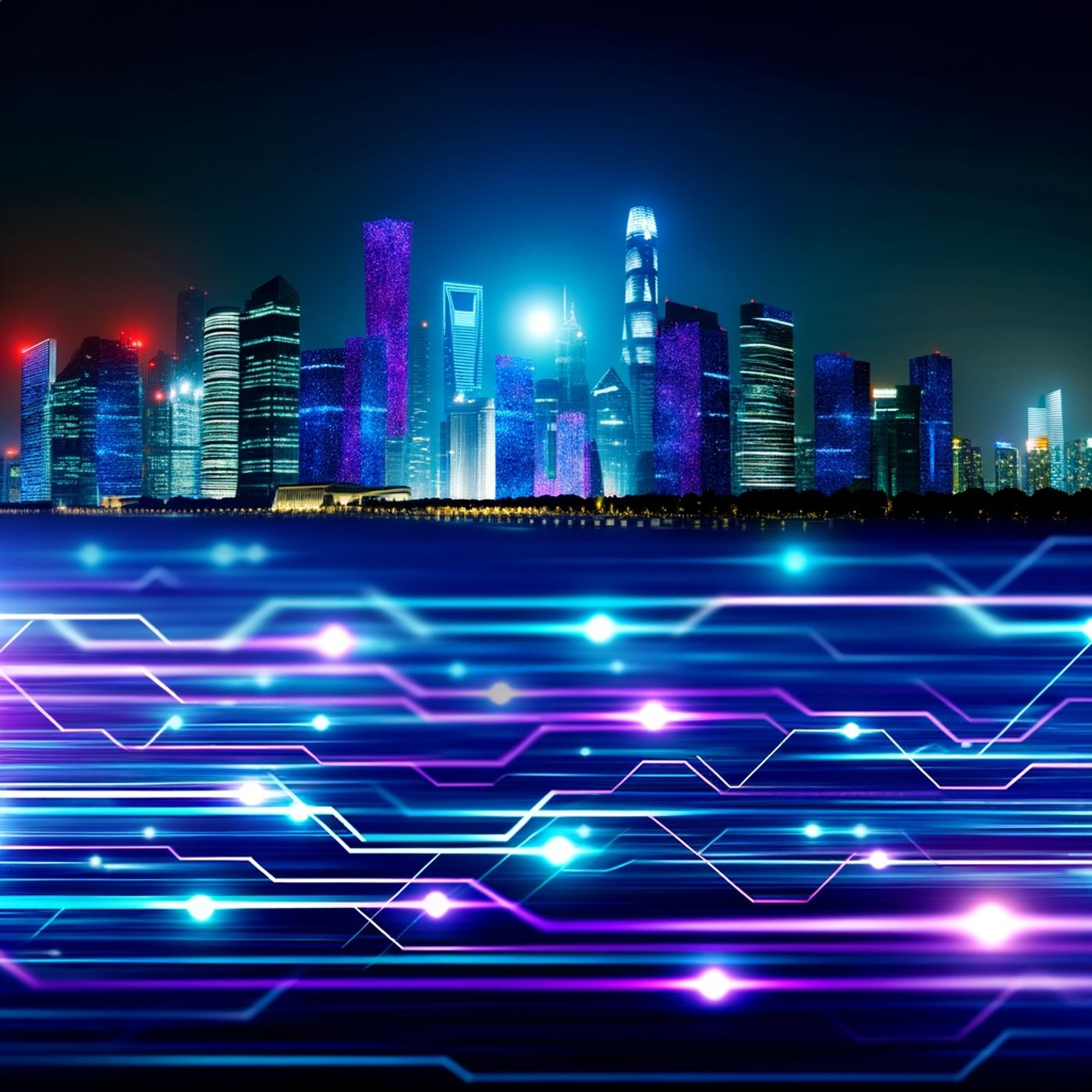Listen "AI Revolution Transforms Global Economy: Breakthrough Technologies Reshape Work, Innovation, and Human Potential in 2025"
Episode Synopsis
Future Forward: Tech Trends Now spotlights an era of extraordinary momentum in technology as artificial intelligence, automation, and next-generation computing converge to reshape how people live and work. As of July 2025, listeners are witnessing breakthroughs that once belonged to the realm of science fiction become a daily reality driving transformation across industries, societies, and personal experiences.According to research by Brimco, investment in AI this year soared to an unprecedented 200 billion dollars globally, with generative AI startups alone attracting nearly 34 billion dollars in private capital. The magnitude and pace are unmatched, and experts predict the AI market will grow fivefold by 2030, with an estimated economic contribution of almost 16 trillion dollars to the world’s GDP. This technological explosion is not limited to developed economies: startups and governments in Africa, Southeast Asia, and Latin America are increasingly tapping AI for agricultural automation, financial inclusion, climate forecasting, and public health tools, democratizing access to the next wave of digital transformation.A landmark development emerged just days ago as OpenAI announced its latest experimental large language model achieved a gold medal score at this year’s International Math Olympiad, solving most of the world’s hardest competition problems at a level on par with human prodigies. This leap underscores how AI is now mastering creative reasoning and complex problem-solving, setting the stage for the highly anticipated release of GPT-5. OpenAI shared that GPT-5 will feature a modular system composed of specialized expert models fluently orchestrated by a smart router, with even more advanced systems like GPT-6 already in training. The message from the industry: the velocity of AI progress and deployment is accelerating rapidly.Adoption is not only about raw technology, but practical impact. Metrigy’s 2025-26 business study highlights that AI’s biggest near-term returns include customer service automation, hyper-personalization, and predictive analytics. Companies are using natural language processing and real-time analytics not just for automation but to reveal deep customer insights, transforming marketing and unlocking superior customer experiences. Rather than replacing people, AI is augmenting the workforce, automating repetitive tasks and freeing human talent for strategic, creative pursuits. Staffing is also being optimized through AI-driven decision-making, raising productivity while reducing time-to-hire and employee burnout.The paradigm shift extends to digital search and information, as covered in a July analysis by Growth Natives. Google’s AI Overviews now steer how content gets surfaced, meaning legacy SEO tactics are obsolete. Machine learning models cluster keywords by context and intent, adapting in real time to trends, device types, and user behaviors, while large language models automate long-tail content and voice-centric queries. As search becomes dominated by AI, those able to integrate these systems with data-driven strategies see distinctly better results.McKinsey’s 2025 tech outlook frames the rise of autonomous systems as another major inflection point. Robotics and digital agents—in physical jobs and information work alike—are moving from novelty pilots to everyday tools, adapting, learning, and collaborating with humans. The future is not a story of machines replacing people, but one of new co-creation and cooperation models, powered by natural interfaces and responsive, context-aware intelligence.The flip side of this boom is the demand it places on infrastructure. With generative AI, robotics, and immersive environments growing, data centers, networks, and energy grids are under pressure to expand capacity and resilience. Leaders are called to quickly align strategy, skills, and ecosystem partnerships to capture the upside of these advances, while governments and organizations worldwide are enacting new policies and frameworks to guide responsible, ethical innovation.From manufacturing floors where AI-powered automation boosts quality and efficiency, to the emergence of real-time, hyper-personalized business interactions, 2025 is proving to be a landmark year. This fusion of accelerating breakthrough, rising investment, and expanding access signals that the next wave of tech will be inclusive, far-reaching, and deeply intertwined with human opportunity.Thanks for tuning in to Future Forward: Tech Trends Now. Make sure to subscribe so you don’t miss the next deep dive. This has been a quiet please production, for more check out quiet please dot ai.Some great Deals https://amzn.to/49SJ3QsFor more check out http://www.quietplease.aiThis content was created in partnership and with the help of Artificial Intelligence AI
 ZARZA We are Zarza, the prestigious firm behind major projects in information technology.
ZARZA We are Zarza, the prestigious firm behind major projects in information technology.
